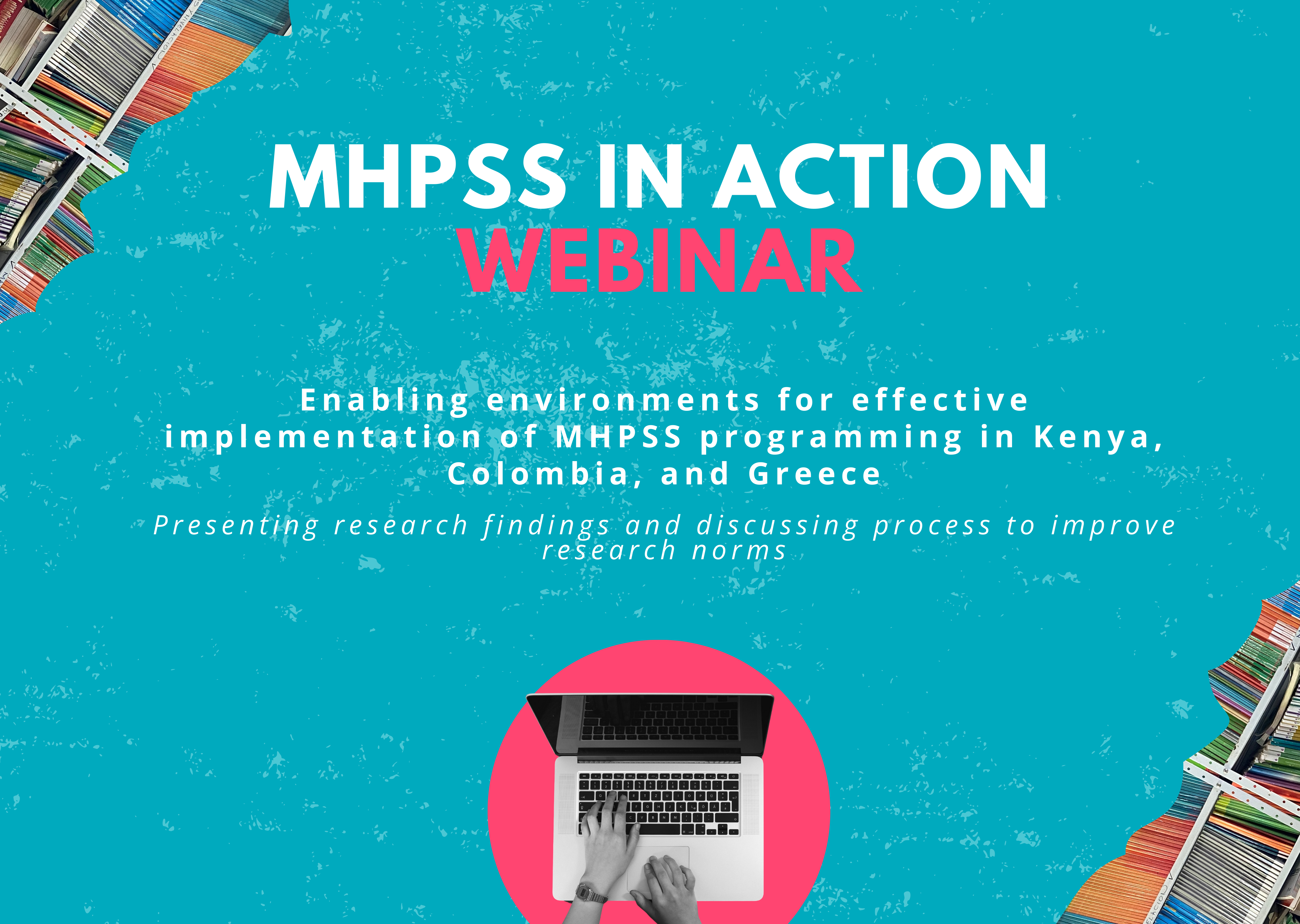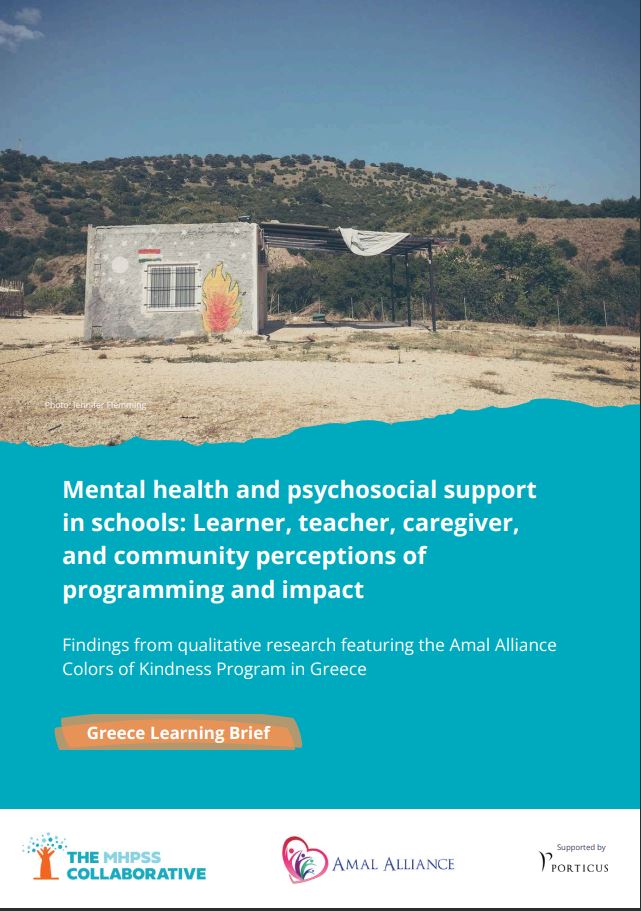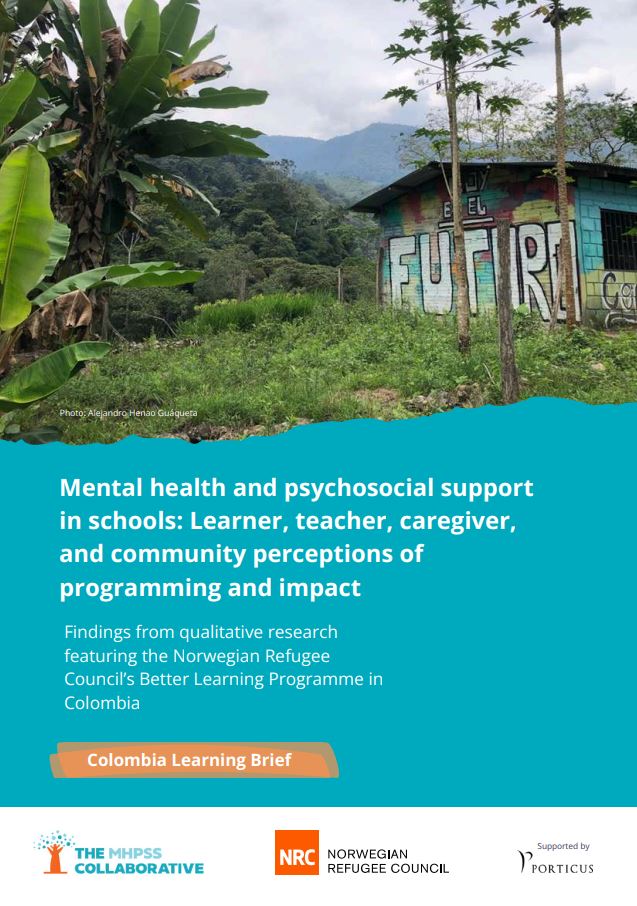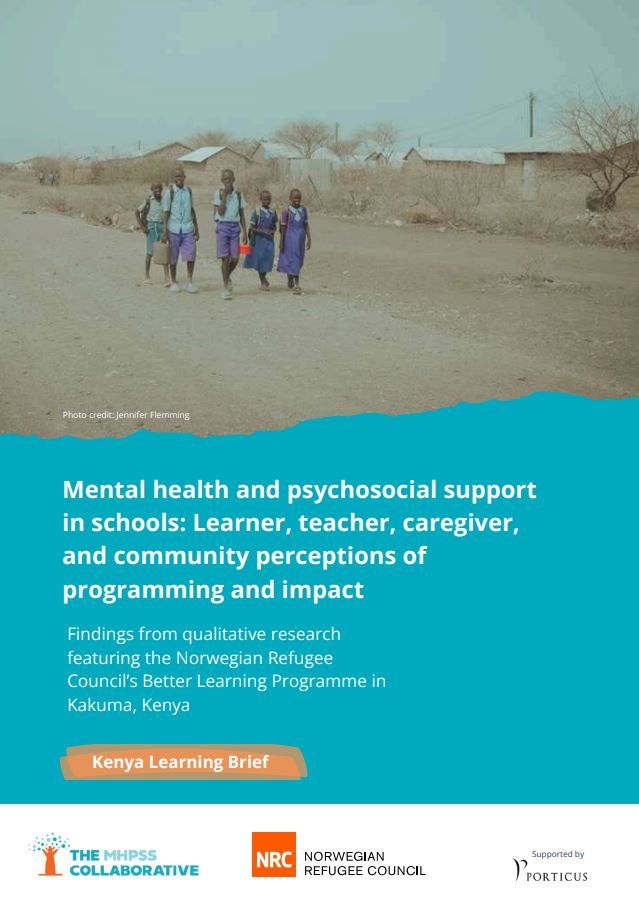This webinar presents findings from over three years of qualitative research examining the key factors that enable effective implementation of mental health and psychosocial support (MHPSS) interventions delivered through school or education programmes in humanitarian contexts.
The research focused specifically on the Norwegian Refugee Council’s Better Learning Programme in Kenya and Colombia, as well as Amal Alliance’s Colors of Kindness programme in Greece. The study presents the perspectives of children, caregivers, teachers, principals, implementing staff, psychologists, regional and national education actors, and other stakeholders. It examines the crucial role of schools and education systems in promoting psychosocial well-being, especially for learners who have been displaced or are living in contexts of ongoing adversity.
The research also presents in-depth reflections on the perceptions of impact of Better Learning Programme and Colors of Kindness, as well as discusses contextual challenges and the ways programmes have adapted in order to deliver appropriate and relevant support to learners in education contexts. The discussion summarizes cross-cutting enabling factors for successful MHPSS intervention implementation drawn from each country, presented by the research coordinator in each context.
It also reflects on the process of conducting the research, and the factors that enabled or hindered successful learning. The moderated discussion includes the grant manager from Porticus (the donor), in conversation with the locally-based research coordinators in Kenya, Colombia and Greece.



